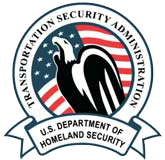| Court: TSA Violated Federal Law by Not Taking Public Comments on Airport Scanners |

A court has ruled, in a lawsuit filed by the Electronic Privacy Information Center (EPIC), the Transporation Security Administration (TSA) violated federal law when it went ahead and installed airport body scanners without seeking comments from the public.
The DC Circuit Court of Appeals concluded TSA “has not justified its failure to initiate notice-and-comment rulemaking before announcing it would use AIT scanners for primary screening.” And, the court ruled that under the Administrative Procedures Act federal agencies are required to provide notice and opportunity for comment when implementing rules that affect the rights of the public.
The ruling was not a complete victory for the privacy rights group. While Judge Douglas H. Ginsburg did agree the machines produce an image of an unclothed passenger and thus the body scanner intrudes upon personal privacy “in a way a magnetometer does not,” the court did not conclude that the scanners violate the Constitution.
Marc Rotenberg, president of EPIC and lead counsel in the case, reacted, “The TSA is now subject to the same rules as other government agencies that help ensure transparency and accountability. Many Americans object to the airport body scanner program. Now, they will have an opportunity to express their views to the TSA and the agency must take their views into account as a matter of law.”
Rotenberg finds that not only does this indicate the government is obligated to begin a process for taking “public comments” on the process, but the result also indicates “travelers have a legal right to opt-out of the body scanner search” and they should be free to exercise that right “without coercion.”
The lawsuit filed in November 2010, just after TSA scanners became operational in a number of airports across the country, shows EPIC sought to demonstrate the scanners violated a Department of Homeland Security statute by “eroding privacy protections by sanctioning the nationwide development of FBS devices in tandem with a systemized collection of airline passengers’ personal information.” The lawsuit also sought to prove the scanners violated the Privacy Act by “creating an indexed system of records containing air traveler’s personally identifiable information without publishing a system of records notice,” and they also violated the Religious Freedom Restoration Act by “substantially burdening the free exercise of religion of those airline passengers who embrace sincerely held religious beliefs requiring preservation of modesty.”
Finally, the lawsuit argued by “systematically capturing images” of the “private area of the individual” including “the naked or undergarment clad genitals, pubic area, buttocks, [and] female breasts,” the TSA violated the Video Voyeurism Prevention.
It does not appear that the court ruled on these individual issues, although they did rule on the constitutionality of the scanners.
The ruling comes just as CBS News reports TSA’s decision to “streamline the airport security checkpoint process for frequent fliers” is “one of the most dangerous things,” according to aviation consultant Michael Boyd.
The TSA would like to make it so that “frequent fliers” can go through less rigorous screening. They may even be able to keep their shoes on and leave laptops in carry-on bags. However, they would have to be a specially selected “frequent flier” and have to pass a “background check” by Customs and Border Protection.
Boyd concludes:
The program) will give (TSA) time to focus on the untrusted travelers, which means if you don’t go through a government background check, you are going to be untrusted. … You’re going to have to go through the same security either way, but what really scares me is you’re not going to be a trusted person unless you go through a government background check — that’s scary.
Here’s a recap for those of you not following along. In the last thirty days, TSA has:The TSA is not a professionally-managed organization,” he said. “The problem with it is we have politics involved. We have go and show — the other day they announced they found a bag with 13 knives in it. I’m not impressed. The reality of this is, this is show and it’s not going to improve anything.
The outcome of this lawsuit isn’t just an occasion to get the public a chance to register comments on scanners in airports. It’s also a chance to get rid of TSA Chief John Pistole.
- Asked a 95-year-old woman to remove her adult diaper (then denied ever asking her to do such a thing)
- Singled out a woman for a hair search probably because she was African-American
- After announcing they would try to avoid patting down children, let TSA pat down a 6-year-old boy twice
- Missed a man who stowed away on a flight from New York to Los Angeles
- Dismissed concerns about increased risk of cancer from the scanners (although these concerns have been coming from scientists since TSA began to use the scanners)
- Arrested a mom for refusing to let TSA search her daughter
- Let a stun gun get on a JetBlue flight to Boston. A cleaning crew found it.
- And, finally, couldn’t stop a scorpion from getting on a plane to sting a man
Here’s Keith Olbermann explaining why he’s got to go:
No comments:
Post a Comment